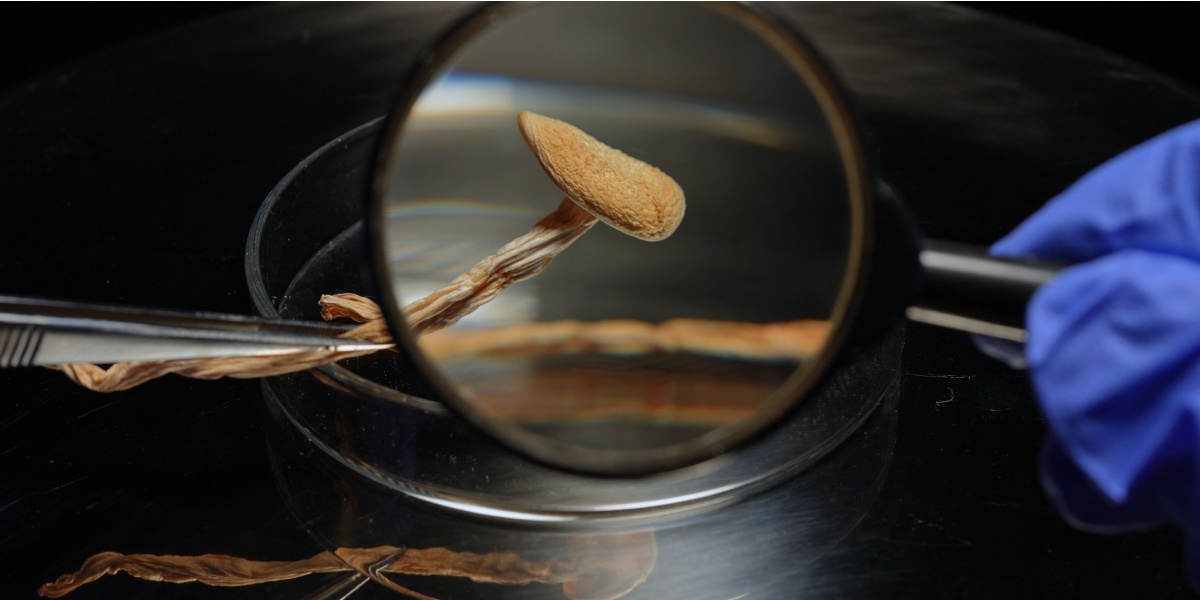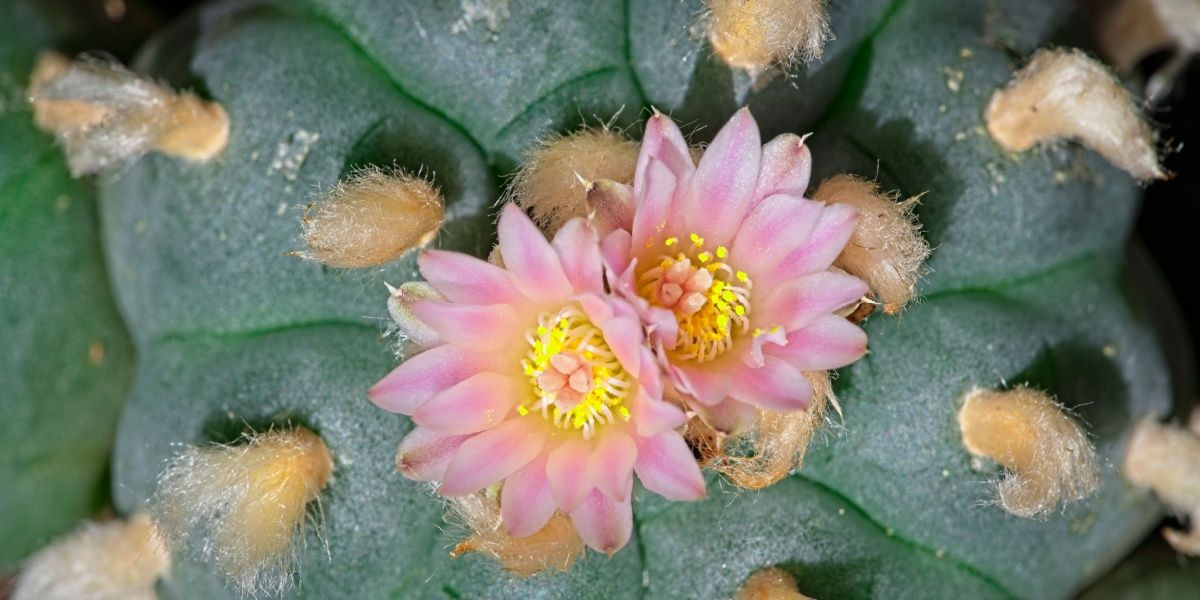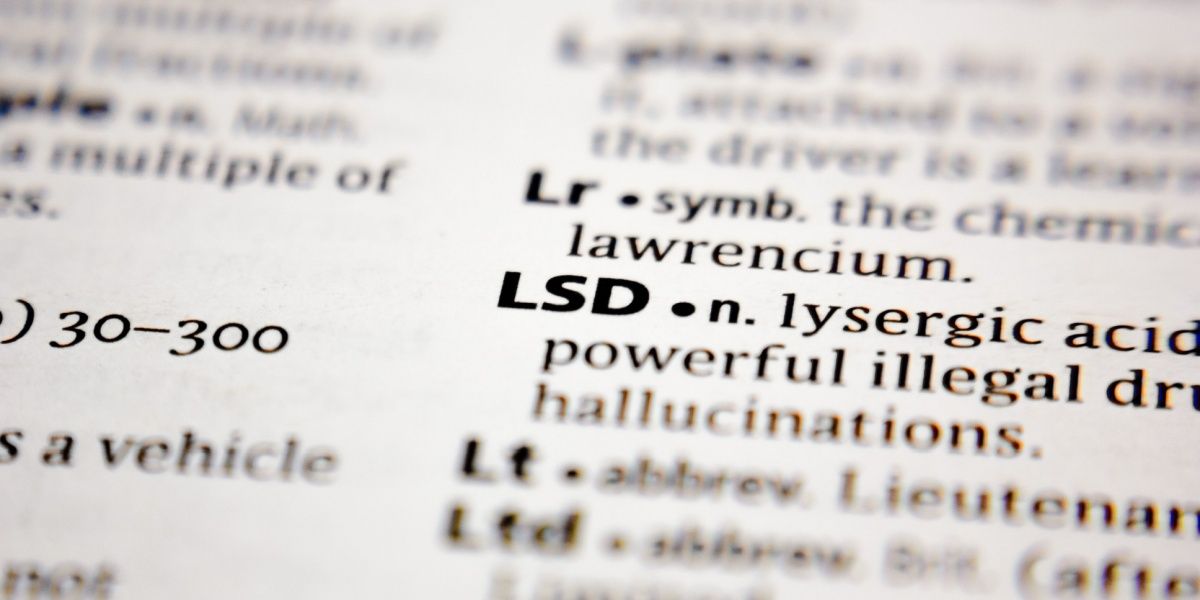The legal situation around different drugs is complicated in the US due to the number of different jurisdictions, types of legislation, and categorizations.
The use of most psychedelic substances is illegal throughout most of the US, but things appear to be changing. Here’s an in-depth look at the legal status of psychedelics in the US, where we are, and how the situation might change in the future.
- Most psychedelics are classified as Schedule I substances under U.S. federal law, meaning they are considered to have no medical use and a high potential for abuse.
- State laws on psychedelics vary, with some states legalizing or decriminalizing certain substances, while others are supporting research into their medical use.
- Growing interest in psychedelic-assisted therapy and clinical research is leading to legislative changes, but federal restrictions remain a significant barrier.

Psychedelics and the law
The main legislation supporting the US federal drug policy is the Controlled Substances Act (CSA). It was passed in 1970 and set out a regulatory framework and system for categorizing controlled substances. It sets rules and penalties around the manufacture, distribution, importation/exportation, possession, and use of potentially harmful drugs.[1]
Substances covered under the CSA are assigned to one of 5 levels, known as schedules. Schedule I drugs are the most potentially harmful and the most tightly controlled. Drugs categorized as Schedule V substances are considered to be the least harmful and are the least tightly controlled.
The majority of psychedelic drugs are listed as Schedule I substances. This includes LSD, psilocybin, psilocin, mescaline, and DMT.[2] This means that they are considered to have no therapeutic benefit and a high potential for abuse.[3]
Some other substances have mild psychedelic effects, like ketamine. These may have varying categorizations.
| Substance | Categorization |
|---|---|
| LSD | Schedule I |
| Psilocybin | Schedule I |
| Mescaline | Schedule I |
| DMT | Schedule I |
| 5-MeO-DMT | Schedule I |
| 2C | Schedule I |
| Ketamine | Schedule III |
A brief history of psychedelic legislation in the USA
Before 1962, new drugs and medicines for the US market were subject to few, if any, controls. [4] Until this time, LSD was being studied widely as a potential therapy for many different conditions. Once the 1962 Kefauver-Harris Drug Amendments made research into LSD more challenging and expensive, research declined while recreational use increased.
LSD and other psychedelics became associated with counterculture movements and particularly with Professor Timothy Leary. Leary was a divisive figure whose recommendation to “turn on, tune in, drop out” fuelled mainstream concern and moral panic around the effects of potentially dangerous drugs, particularly psychedelics.
In 1970, US legislators passed the Controlled Substances Act, placing psychedelic drugs in the most tightly controlled and enforced sections of the rules with the harshest penalties. This law has remained virtually unchanged since that date, and the federal rules around psychedelic research and use are based on them being harmful and having no medical benefits.
Current psychedelic legal status by state
| State | Legal status [5] |
|---|---|
| Alabama | No state legislation |
| Alaska | Active legislation in progress |
| Arizona | Inactive/failed legislation attempts |
| Arkansas | No state legislation |
| California | Local reforms to support decriminalization |
| Colorado | Legalized |
| Connecticut | Medical research/trials ongoing |
| Delaware | No state legislation |
| Florida | Inactive/failed legislation attempts |
| Georgia | Inactive/failed legislation attempts |
| Hawaii | Medical research/trials ongoing |
| Idaho | No state legislation |
| Illinois | Active legislation in progress |
| Indiana | Active legislation in progress |
| Iowa | Inactive/failed legislation attempts |
| Kansas | No state legislation |
| Kentucky | Medical research/trials ongoing |
| Louisiana | No state legislation |
| Maine | Active legislation in progress |
| Maryland | Medical research/trials ongoing |
| Massachusetts | Local reforms to support decriminalization |
| Michigan | Active legislation in progress |
| Minnesota | Medical research/trials ongoing |
| Mississippi | No state legislation |
| Missouri | No state legislation |
| Montana | Inactive/failed legislation attempts |
| Nebraska | No state legislation |
| Nevada | Medical research/trials ongoing |
| New Hampshire | Inactive/failed legislation attempts |
| New Jersey | Reduced penalty |
| New Mexico | Judicial exceptions |
| New York | Active legislation in progress |
| North Carolina | Active legislation in progress |
| North Dakota | No state legislation |
| Ohio | Inactive/failed legislation attempts |
| Oklahoma | No state legislation |
| Oregon | Legalized |
| Pennsylvania | Inactive/failed legislation attempts |
| Rhode Island | Inactive/failed legislation attempts |
| South Carolina | No state legislation |
| South Dakota | No state legislation |
| Tennessee | No state legislation |
| Texas | Medical research/trials ongoing |
| Utah | Medical research/trials ongoing |
| Vermont | Active legislation in progress |
| Virginia | Inactive/failed legislation attempts |
| Washington | Medical research/trials ongoing |
| West Virginia | Inactive/failed legislation attempts |
| Wisconsin | No state legislation |
| Wyoming | No state legislation |
States where it is legalized or decriminalized
States have several options when it comes to loosening the legal status of psychedelics. Legalization means removing legal rules against possessing or using psychedelics. This is challenging, given their status as a Schedule I drug. Legalization also includes legalizing the supply of drugs, which opens up the possibility of regulation.
An alternative strategy is decriminalization.[6] Under decriminalization, the act remains illegal, but any criminal consequences are removed. This prevents the development of industries or regulatory bodies. Reduced penalty occurs when a state lowers the criminal repercussions of possessing or using a particular drug but does not remove them entirely. Possession might be decreased from a felony to a misdemeanor, for example.[7]
Colorado
In 2022, Colorado passed a ballot initiative creating a regulatory framework for the regulation and legalization of psychedelics. These will be offered in “healing centers”. The legislation currently only covers psilocybin and psilocin but may be expanded in 2026 to include DMT, ibogaine, and mescaline.
New Jersey
Penalties for personal use of psilocybin were reduced from 3-5 years imprisonment and a fine of up to $35,000 to up to six months in prison and a fine of up to $1000.
New Mexico
The New Mexico State Court of Appeals ruled in 2005 that growing psilocybin mushrooms does not count as “manufacturing” and is, therefore, legal. Any packaging or repackaging of mushrooms remains a felony, however.
Oregon
Oregon was the first state (2020) to legalize psilocybin for therapeutic purposes. It also decriminalized the personal possession of all drugs, including psychedelics. Much of this decriminalization was reversed in April 2024, but psilocybin remains legal for medical uses, which includes the treatment of mental health conditions.
States where medical research is allowed
Connecticut
In 2021, a working group was created to explore the therapeutic benefits of psilocybin. Further legislation has been introduced that, if passed, would allow the use of psilocybin for medical purposes.
Hawaii
Measures are ongoing to create an advisory council able to evaluate treatment potentials for psilocybin and related products as well as MDMA.
Kentucky
The Attorney General has announced that they will be using $42 million to invest in research into the use of ibogaine to treat addiction.
Maryland
A Task Force on Responsible Use of Natural Psychedelic Substances has been approved. This aims to create a program of broad, equitable, and affordable access to psychedelics for therapeutic purposes.
Minnesota
A task force was established in 2023 to study the effectiveness of psychedelic medicines and compare them to conventional treatments. It will then advise on legalizing selected psychedelic drugs if appropriate.
Nevada
Legislation has been passed to create a working group to make it easier for research institutions to study the effects of psilocybin and psilocin.
Texas
HB1802 was passed in 2021, requiring the creation of a working group studying the use of psychedelics, including psilocybin, MDMA, and ketamine, to treat PTSD.
Utah
Pilot projects were created in 2024 allowing two healthcare services to provide treatments based on MDMA and psilocybin. Those providers are Intermountain Healthcare and University of Utah Health.
Washington
A working group was created in 2022 to investigate legalizing the use of psilocybin along similar lines to the regulation of marijuana. In 2023, a pilot project allowing veterans and first responders to access psilocybin for treatment purposes was created.
States with ongoing local reforms
Alaska
In 2024, Alaska established a task force to prepare for the potential legalization and regulation of psychedelics for medical use.
California
Several major cities in California, including Oakland, Santa Cruz, Arcata, Berkeley, and San Francisco, have all designated personal use of some psychedelics as the lowest priority for law enforcement. The city of Oakland has prohibited the use of public funds to support the criminal prosecution of adults possessing or taking hallucinogenic plants or compounds derived from them.
Illinois
Illinois has ongoing legislation aimed at establishing an advisory board, creating a regulated industry, and reducing criminal penalties for psilocybin and psilocin.
Indiana
Legislation is currently underway, designed to create a research fund to be administered by the Department of Health to study the therapeutic uses of psilocybin.
Maine
Maine has ongoing legislation that follows a similar model to Oregon's. Psilocybin would be able to be provided from service centers by registered facilitators, and the entire industry would be regulated.
Massachusetts
Statewide ballot initiatives have failed to pass, but some local reforms have been enacted. The cities of Somerville, Cambridge, Northampton, and Easthampton have all designated the possession and use of hallucinogenic plants to be the lowest law enforcement priority. Several areas, including Salem, have also ruled that no public funds should be used to support criminal penalties for these acts.
Michigan
Ballot initiatives are underway to decriminalize Schedule I and II substances and legalize some psychedelic substances.
New York
Multiple pieces of relevant legislation are in process. One seeks to create a regulated medical program for the use of psilocybin. Other bills seek decriminalization and legalization of psychedelic substances, as well as provide protections for those using these substances legally.
North Carolina
North Carolina has ongoing legislation aimed at providing grants for studies researching the use of psilocybin or MDMA. MDMA research would need to be focused on vulnerable groups, and psilocybin research would need to examine anxiety and depressive disorders.
Vermont
Vermont has introduced legislation designed to decriminalize specific psychedelic substances. This has not yet been resolved. Separately, a working group has been established to review the use of psychedelics as therapeutic drugs and provide recommendations for future legislation.
Psychedelic research and how it affects the law
Psychedelics are some of the oldest drugs known, and their properties have been acknowledged for hundreds, if not thousands, of years. Scientific research into their mechanism of action and effects is far more recent.
LSD was first synthesized in 1938, and researchers quickly became interested in its psychedelic effects. Between 1951 and 1966, around 1000 articles described the results of experimentation with LSD, with a particular focus on its role in assisting psychotherapy.[8] Many of these were funded by the federal government.[9]
See also: DMT Therapy, Psilocybin Therapy, and Ibogaine Treatment
The high level of interest in LSD research began to decline in the US during the 1960s and was almost entirely eradicated by the 1970s.[8] While several factors influenced this change, the Controlled Substances Act (CSA), which was passed in 1970, had a significant impact.
The CSA presents significant barriers for researchers trying to access controlled substances (especially Schedule I controlled substances) for research purposes. This increases both administrative effort and the costs of research.[6] Funding may also be more scarce, especially from pharmaceutical companies, given the limited prospects for monetising any therapeutic effects.[10]
Even where research into Schedule I drugs may be possible, a substance’s inclusion on that list reduces research interest and medical knowledge. Heroin research is similarly almost non-existent in the US but popular within the UK, where it is permitted for medical purposes.[10]
Even now, as interest in the therapeutic benefits of psychedelic substances is increasing dramatically, countries with less restrictive drug laws are taking the lead in research. The Dutch government, for example, is taking active steps to prioritize research into these drugs.[11]
Religious and cultural exemptions
Some rare exceptions allowing legal hallucinogen use can be found in specific religious and cultural practices. The most notable of these is the Native American Church, which is legally permitted to use peyote in religious ceremonies.[3]
The Native American Church isn’t a single religious entity. Instead, it is a collection of different tribes, beliefs, and practices. All of these groups use peyote as part of their traditions. They formed the church in 1918 as a way to ensure that their practices would be accepted. These efforts were effective, as laws passed in 1978 and 1994 allow federally recognised Native Americans to use, harvest, and transport peyote (but not other hallucinogens).[12]
For most states, only Native American religious purposes are considered legal uses of peyote. Other states, including Arizona, permit any religious or spiritual uses of peyote. Using the Religious Freedom Restoration Act, two Brazilian ayahuasca religions have also been able to gain exceptions permitting their use of psychedelics in religious ceremonies.[13]
Many of the state laws around the legalization and decriminalization of psychedelics have specifically excluded peyote, a psychedelic commonly used by Native Americans in traditional spiritual practices. This is a slow-growing plant that is facing habitat loss. Native American groups have asked that this plant be excluded from relaxing legal rules around psychedelic use to preserve it for their traditional purposes.
Public backlash and opinion
Even in areas where voters have supported increased access to psychedelics, public opinion has not always been consistent. Despite Oregon legalizing the use of psilocybin, for example, several counties and cities have put bans in place. This has sometimes been attributed to concerns around the fentanyl crisis.[14]
Similar issues are found in Colorado, where concerns about the risks associated with psychedelic use are leading to calls for increased restrictions on treatment centers.[15]
Global psychedelic laws
The US has some of the tightest laws controlling psychedelics in the world. Many other countries have less stringent rules. Specific psychedelic mushrooms or truffles are legal in Brazil, the Bahamas, the British Virgin Islands, Jamaica, Nepal, the Netherlands, and Samoa.
In other cases, countries have not passed any legislation concerning certain psychedelic substances. The Netherlands, for example, hasn’t included ibogaine or DMT in drug classification systems, leaving them in a legal gray area.
In Switzerland, MDMA, psilocybin, and LSD can be used for therapeutic purposes under tightly controlled circumstances. Other European countries, such as Spain and Portugal, have decriminalized possession for personal use, while Canada is reducing enforcement of laws around psilocybin and peyote.
The future of psychedelics in America
Cannabis has taken a path towards legalization through the state rather than the federal route. The same path may be open to psychedelics if they can be demonstrated to be both safe and effective in ongoing clinical trials.[17] There does seem to be some momentum to move towards increasing decriminalization and legalization, but this process is likely to be patchwork, with states considering decriminalization being more left-leaning than those that are not.[17]
The opportunities for further research into the use of psychedelics in America are increasing. In 2023, the FDA released draft guidance on the use of psychedelic drugs in clinical trials. This represents a step towards acceptance of the potential benefits of psychedelics in treating mental health disorders and may encourage more organizations to engage in this type of research.[18]
Given the bills recently submitted to state legislatures, some academics and healthcare professionals are concerned that controls around psychedelic use may be loosened in advance of the results of medical research around safety and efficacy.[19]
Recent years have also seen an increase in the number of Americans attending "wellness retreats" or "healing centers" overseas to access psychedelic drugs. This includes groups not typically associated with counterculture movements, such as veterans, who are seeking relief from serious conditions such as PTSD.[20] There appears to be a growing appetite for the use of psychedelics within the wellness and well-being industries, which states may be keen to facilitate.
2025 psychedelic law updates
So far in 2025, numerous state-level psychedelic law reforms were introduced during legislative sessions, but only a few were ultimately passed.
However, New Mexico saw the legalization of a regulated market, and Texas received a grant for research into ibogaine treatment for opioid use disorders.[21]
Disclaimer
This page is for informational purposes only. No guarantees are made regarding its accuracy or completeness, and it does not constitute legal advice. Consult a lawyer in your jurisdiction before engaging in any activity that may involve legal risk or penalties.


-guide-detail.jpg?v=1722502767)

